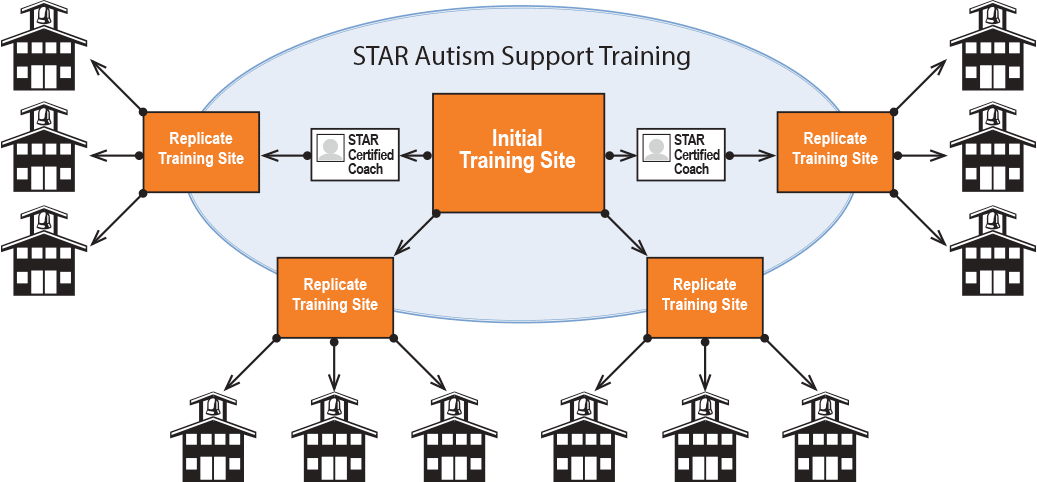Puerto Rico Autism Project- A Case Study
Implementing Evidence-based Practices Districtwide: How to Get There and Stay There
In June 2014 the Puerto Rico Department of Education, along with Bayamon Preschool, conducted a training for a select group of staff on implementing evidence-based practices for students with autism and other developmental disabilities. STAR Autism Support (SAS) set out to assist these educators through a combination of training and curriculum tools. Throughout the 2014 – 2015 school year SAS has rolled out the STAR Program and Links Curriculum (along with a variety of other research-based tools) to select training sites across the island of Puerto Rico.
The goals for the department of education were three-fold:
· Develop regional model sites that implement evidence-based practices for students with autism
· Build capacity for local coaches to rain staff for districtwide implementation
· Provide localized, translated, bilingual curriculum resources
The key to a project of this magnitude was recognizing that achieving each of these goals is a process the requires a timeline (see image):
To date a great deal of progress has been made even in the preliminary stages of the project. Evidence-based practices are being implemented, student outcome data is being actively collected and sharing of strategies across classrooms has already begun! SAS has assisted in provided a project website to organize and coordinate the sharing of information and resources (see image of webpage). The collaboration amongst coaches and SAS staff has significantly increased the speed with which instructional staff has been trained.
Comments:
· “Yamaris’ room looks amazing, her classroom could be a perfect training site. She’s taking functional routine data!”
· Things here are working very well. The teachers are really amazing”
· “Yesterday a parent came to my door, asking if her child could attend my class!”
The success that we have seen in such a short time in this project is really a result of the commitment to building comprehensive districtwide programs. SAS takes a similar approach when working with all of it’s district, regional and state clients.
Consistency of instructional practices across grade levels and classrooms is essential for districts to create positive outcomes for students, communicate with parents, meet legal requirements and monitor student progress. Research studies have found that students with autism can learn communication, social, adaptive and academic skills when evidence-based strategies are combined with a research validated curriculum (Bacon, Bacon, Dufek, Schreibman, Stahmer, Pierce and Courchesne, 2014; Arick, Young, Loos, Falco, Krug and Johnson, 2003; Mandell, 2010, 2014). By implementing a consistent curriculum across the grade levels, teachers, administrators and parents are able to track student progress and ensure instructional goals are met. This is particularly important following summer breaks and when transitioning between grade levels.
A district-wide curriculum provides both staff and parents a road map focusing on student strengths, present levels of performace and short and long term goals. Curricula which includes both comprehensive assessment and lesson plans connected to the assessment is one of the most effective ways to ensure consistency of instructional practices for all students and provide the tools teachers need for success.

